Translator Catherine Venner learned a lot from her first visit to the London Book Fair almost five years ago. In this article, Catherine shares her experience of this year's London Book Fair and offers advice for any translators considering attending this international book event in the future.
As an early career literary translator, you’ll often be advised, “Go to the London Book Fair. It’s a great way to meet people and step closer to translating that book you love.” And so about five years ago, I decided that it was time for me to head on down to the capital and check it out.
And let me tell you, it was quite a shock: huge trade halls, masses of people moving around as well as the general noise and hubbub – a very different atmosphere to my spare-room-cum-office and my cat as my only co-worker. All in all, I’d had a nice time, met interesting people and attended informative discussions, but I returned to the north east very tired and wondering if I should have planned my trip a little better.
It turned out that thanks to the pandemic, I wouldn’t be able to attend LBF for several years but this spring, it was time to dip my toe back into the book fair waters. I’d learned a lot from my previous visit and decided to put it to use when planning my trip.
WHAT TO EXPECT
The London Book Fair (LBF) is a highly commercial affair. The people here are here to do business and network, and you get a general sense of that as you walk around the floors. Larger publishers have their own huge gated stands that you may only enter by prior appointment, while smaller presses have more open stands with some books on display, but it is still hard to speak to anyone unless you have already arranged it.
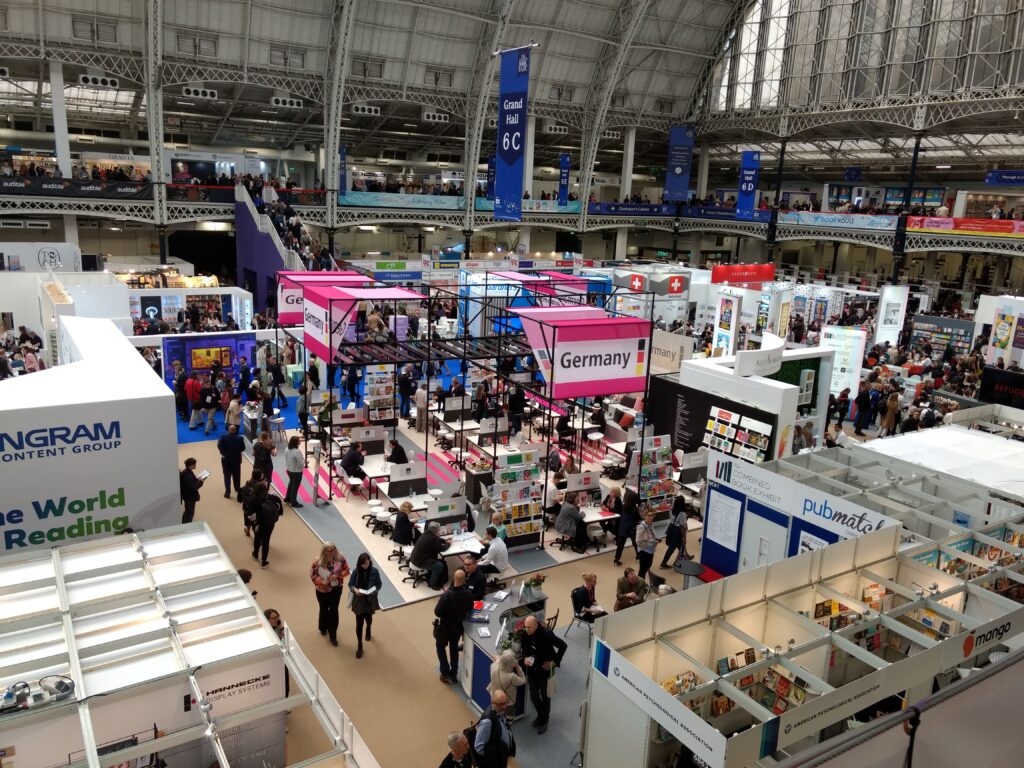
Standing in the halls, looking over the throng of exhibitors and visitors, it’s easy to feel insignificant, like the tiniest cog in a monster machine. But even the tiniest cog has its purpose and place. For many translators, their place will predominantly be at the Literary Translation Centre (LTC). It boasts a stage hosting panel discussions on topical translation issues (albeit with limited seating – more on that later). But it’s also a great place to meet fellow translators intentionally or just to bump into people you may know from workshops or internet forums.
WHO YOU CAN MEET
At its core the London Book Fair is a place to meet up; even some publishers told me that they no longer go to the fair expecting to buy titles on site, but are there for the conversations that will lead them to finding great books. And so, however much your introverted translator’s heart wants to just blend in and soak up the atmosphere, I would recommend doing your best to meet people.
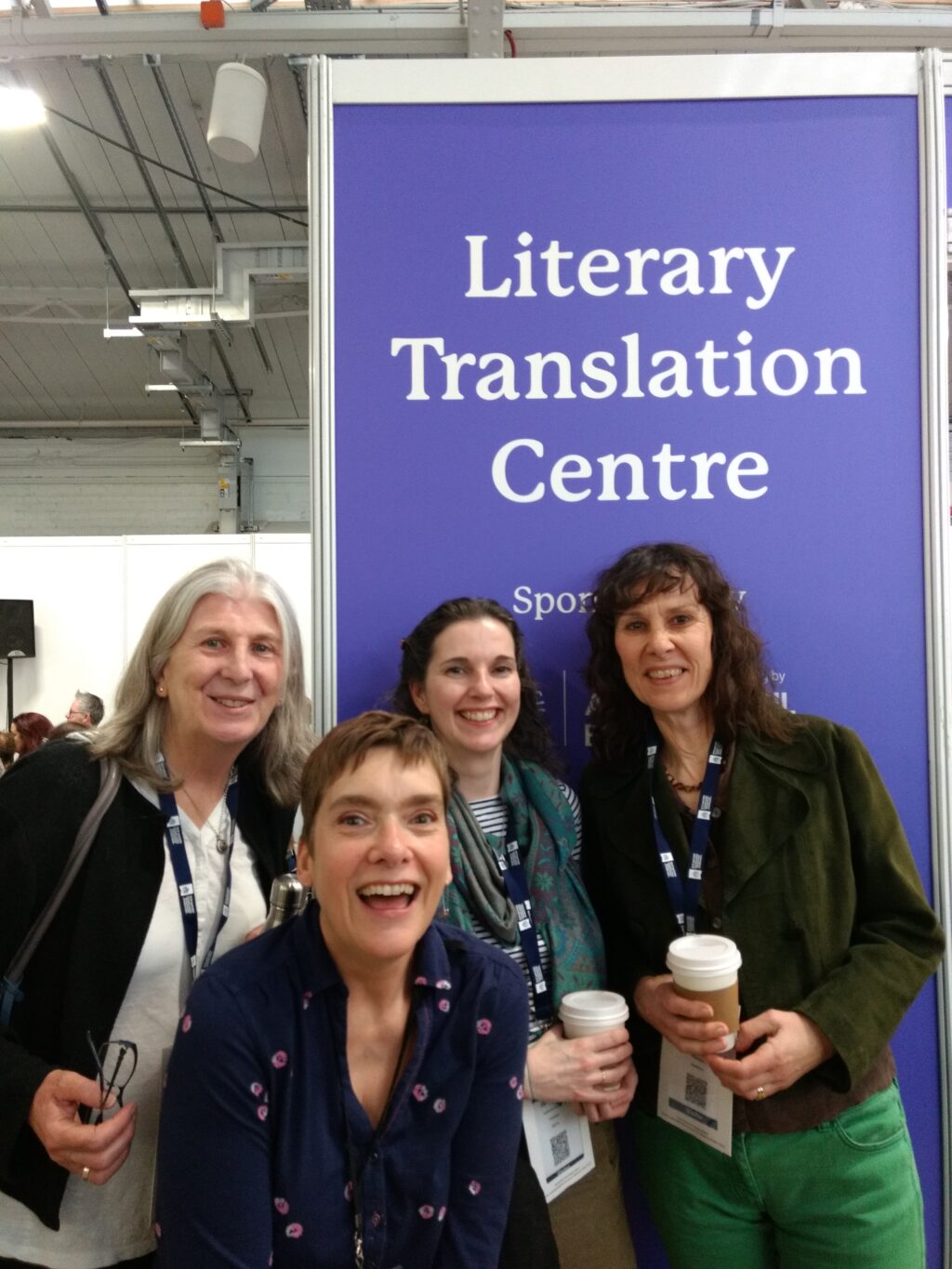
If you are at the LTC, you will undoubtedly connect with lots of other translators. At such a large event, it’s wonderful to see familiar, friendly faces. Last year, I was lucky enough to take part in the online BCLT Advanced German Workshop and a couple of my fellow attendees were also at LBF. Meeting up in person with a coffee and chatting about our various projects was certainly a highlight.
LBF is also a great opportunity to meet with the national funders of your source languages. Most of the larger languages (including the German and Swiss collective stand) will have their own representations where you will be able to find out about translation opportunities and possibilities for translation funding. They are also likely to host a reception where you will get a chance to informally meet with publishers from your source language and other translators working in your language combination. So keep an eye out for the parties.
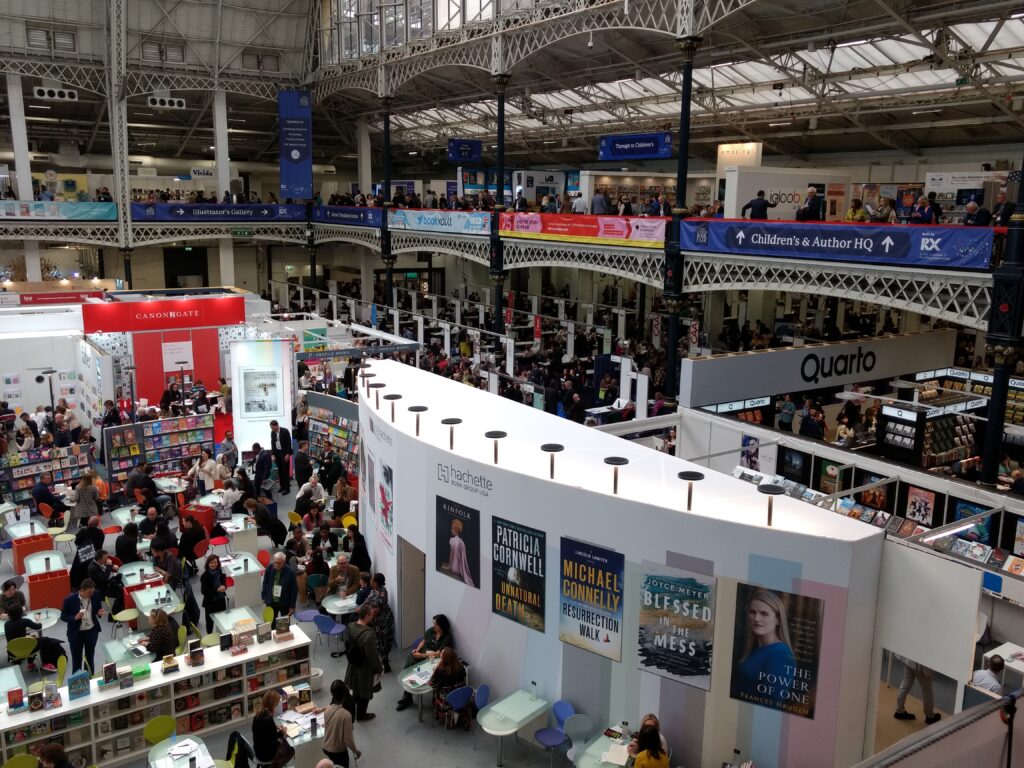
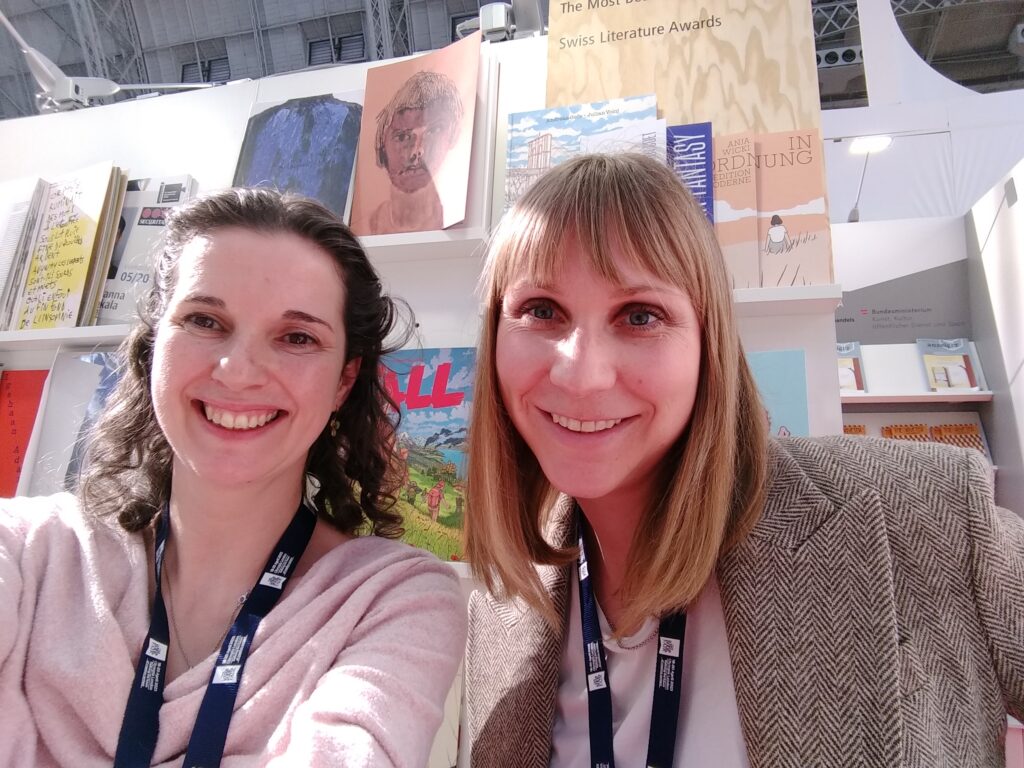
And then there are the publishers. LBF is a truly international affair and so it is a great opportunity to meet those German publishers you may already be working with, and to discuss any upcoming projects. Our contacts in foreign rights departments generally come to the fair. It’s also a good place to catch up with English-language publishers that you may know or have worked with in the past, and maybe even pitch something if you’re feeling brave.
WHAT TO PLAN
In my experience, it’s best to plan who you would like to meet and arrange appointments with them. Some of the foreign rights people may only be in the International Rights Centre and you need an appointment to enter this hallowed space. Most people are very busy, so unless you catch them when they have a “no-show”, they’re unlikely to have time for a spontaneous chat.
Among all the buzz of the fair, it’s rather comforting to have set points during the day when you know exactly where you will be and who you will be talking with.
That said, you may also want to walk around the exhibitions and attend talks at the other stages and for this, good comfortable shoes are a must. The distance that you will walk once you are inside Kensington Olympia is not to be underestimated, nor the fact that you will spend the majority of your day on your feet.
As I mentioned above, the discussions at the LTC were well attended, meaning that all the seats were always taken and the audience spilled outside the designated area with standing room only. Plenty of us eventually just gave up and found somewhere with low traffic to sit on the floor, thankful to not be wearing white trousers that show up every speck of dust.
LBF is a truly international affair and so it is a great opportunity to meet those German publishers you may already be working with, and to discuss any upcoming projects.
Catherine Venner
WHAT TO BRING
After spending way too long on their design, I got some business cards printed in the run-up to the fair. And while it was quite a thrill to be able to “exchange cards” on occasion, I’m not sure how useful they actually were and whether it’s just better to be the one to drop people a line after meeting them. But who knows, maybe my card will one day be in the hands of a publisher needing something wonderful translating …
I was fortunate enough to be able to prepare food and coffee to bring each morning. Both the days and the queues for the cafes are long at the LBF. Unless in good company, standing in the line feels like a bit of a waste of time. I was glad to see water fountains where you could fill up drinking bottles so that staying hydrated wasn’t a problem.
I was also thankful to have brought a notepad and pen with me. Sounds obvious, but I nearly forgot and with so many conversations squashed into just three days, it was good to make notes.
Internet coverage in Olympia is patchy (I found myself often hiding behind the Penguin stand where the signal was slightly stronger). Keeping an eye on my messages proved fortunate as a few meetings needed to be rescheduled due to airport strikes in Germany, and I became quite the expert in describing my hairstyle and clothes to people I was meeting away from stands. A small power bank earned its space in my bag when at 2 in the afternoon my phone showed 5% battery.
WHAT I GOT OUT OF IT
Although it’s always the dream, I didn’t walk away with a contract to translate a new book. I don’t think that was every really to be expected. But I did come away with more understanding of the industry and the part that the translator plays in it. I also enjoyed putting faces to names of people I’ve worked, corresponded and studied with, and in turn this has given me a better sense of fitting in and having a place in the world of publishing. And maybe, just maybe, one of those conversations I had might just spark an idea that leads to a wonderful translation project at some point down the line.
Would I advise early career translators to go to the book fair? Definitely, it feels like a rite of passage. Will I go to the book fair again? Certainly, just maybe not next year!
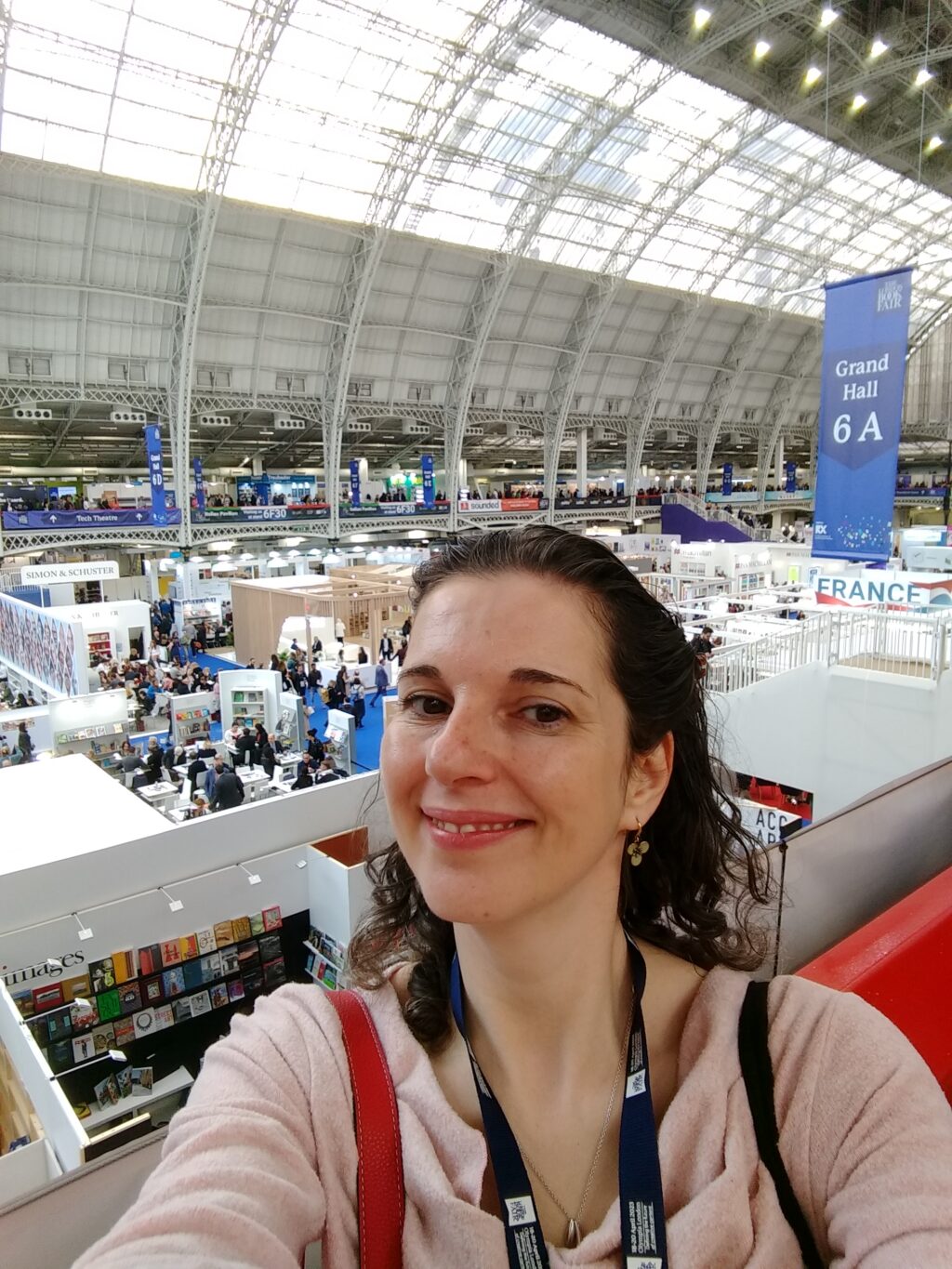
Catherine Venner is a translator from German to English based in Durham, England.
Catherine has been working as a translator from German to English since 2005. She initially worked on translations of academic publications in the social sciences field before moving into legal and financial translation.
Catherine has been a freelancer since 2013 and recently began focusing on literary translation. Her first full length literary translation will appear in 2023.
Find out more at http://catherinevenner.co.uk.









